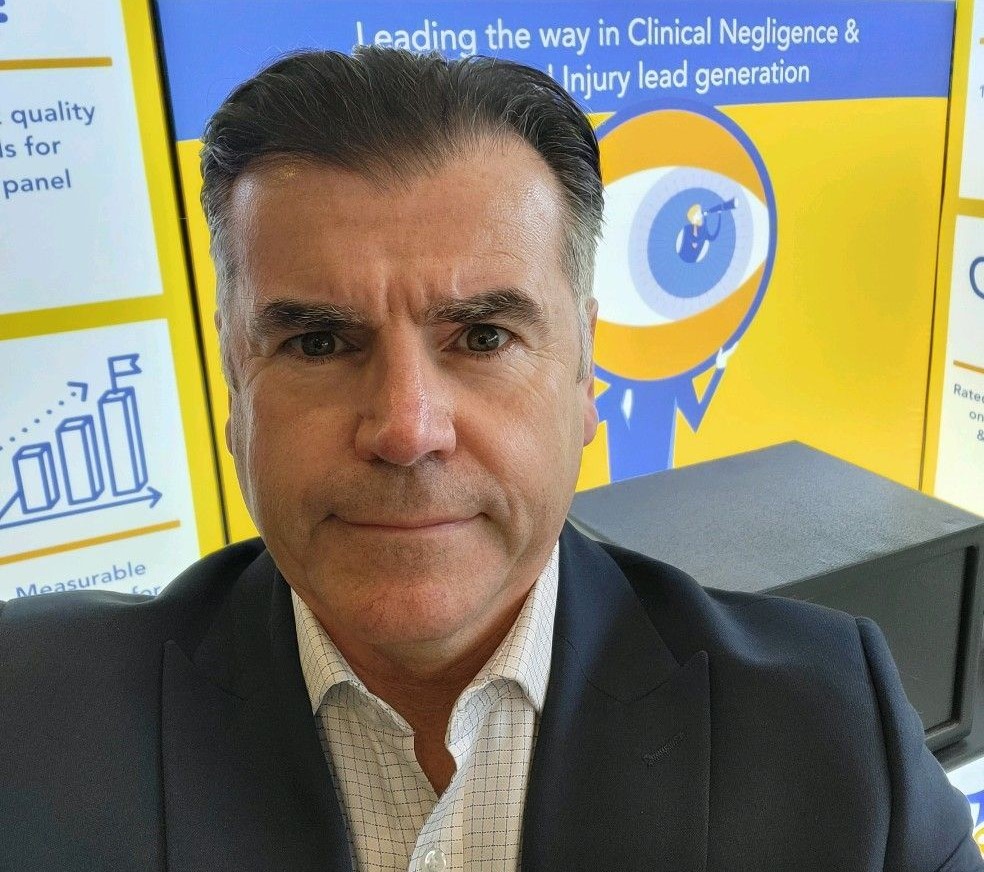On the Road with Nick Delaney head of business development

After so long spent seeing industry colleagues only through a computer screen, it felt great to pack up our brand new exhibition stand and get back out to events this month.
The first was the Society of Clinical Injury Lawyers’ Exhibition Day in Birmingham followed by the PI Futures conference, which this year was held at Manchester City’s impressive Etihad Stadium.
While Covid restrictions were lifted three months ago, many people have been understandably cautious, but the attendance at both events was a welcome sign that things may finally be returning to normal.
Not only were they a long-overdue chance to catch-up with friends and colleagues and meet new contacts, but it was also good to be back together discussing the key issues affecting our industry and sharing insights and ideas.
There were some surprises such as Conservative MP Sir Bob Neill, a speaker at the SCIL conference, who admitted he had ‘a number of reservations’ about the government’s plans to impose fixed recoverable costs on lower value clinical negligence claims.
Others were more predictable. Despite David Parkin from the Ministry of Justice hailing the Official Injury Claim portal a “cautious success”, a poll of the audience at PI Futures found just one person who agreed – his colleague from the MoJ!
Big issues
Like many, my working day still involves a fair few video calls, but it’s good to finally be getting back out on the road and visiting people in person.
Recruitment and retention is an ongoing issue. With the increased job opportunities that remote working has brought, the pool of potential candidates has, in many cases, got a lot bigger and firms are having to work a lot harder to attract the best talent.
Reforms are obviously a hot topic, particularly plans to overhaul how clinical negligence cases are handled, which many specialists fear could seriously impact access to justice for vulnerable claimants.
The conversations I’m having suggest that most people aren’t looking too far ahead, however, which may be wise given the time it took to implement whiplash reforms and the problems that have still ensued. As Matthew Maxwell Scott, executive director of the Association of Consumer Support Organisations, told PI Futures: “It is incredible that the government took six years to get this done and still rushed it.”
Looking ahead
What is encouraging is that we are not seeing people drop out of the marketplace and neither have we seen a reduction in appetite from our panel members.
The pandemic and the resulting fall in the number of personal injury and clinical negligence claims forced many firms to recalibrate, which has put them in a better position to deal with the challenges ahead.
The impact of the OIC portal has led to half ditching lower value RTA cases according to our recent ‘State of the Market’ survey. But the responses also show a resilience, with many diversifying into areas of personal injury not currently covered by fixed costs, or outside of personal injury altogether.
The legal landscape is changing but, as a profession, we have weathered what the government likes to call progress before, and I am sure will do so again. Until then, we will continue with the day-to-day of ensuring vulnerable accident victims continue to get the access to justice they deserve.
While I’m always at the end of a phone, I also look forward to continuing getting out and about and meeting more of you in person over the coming months.

